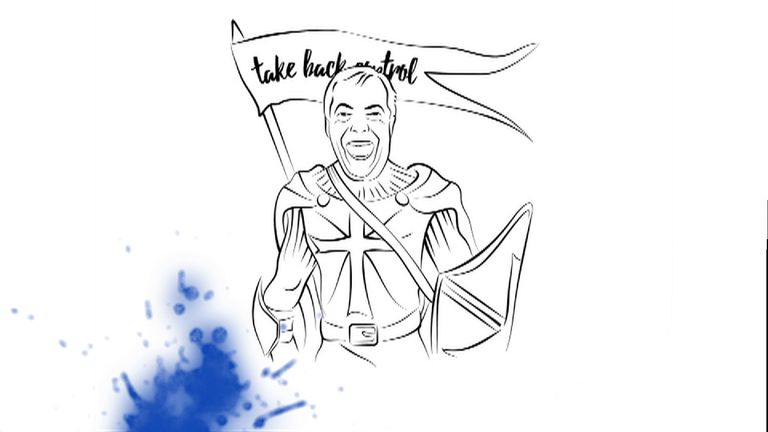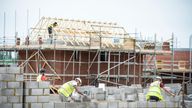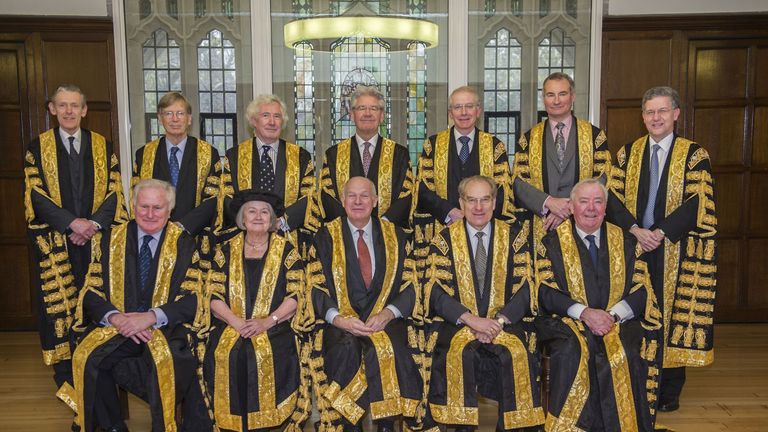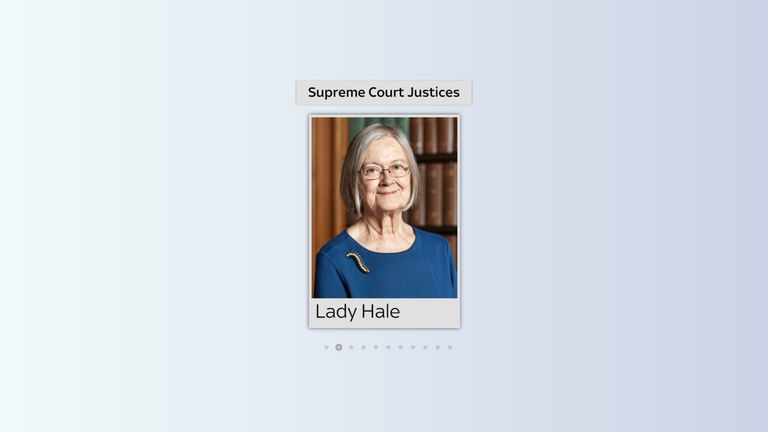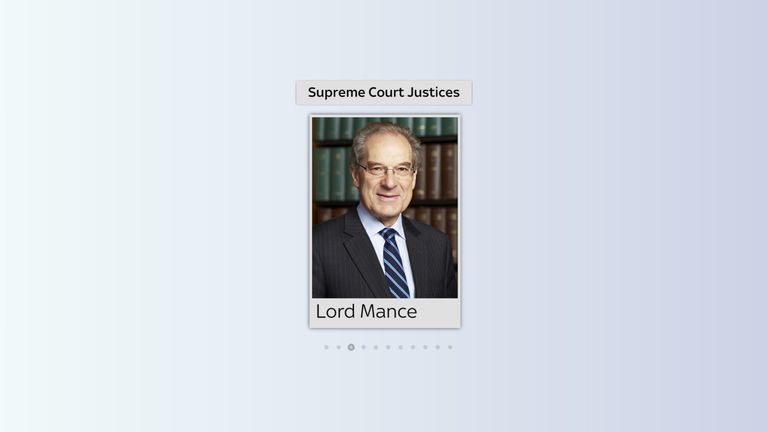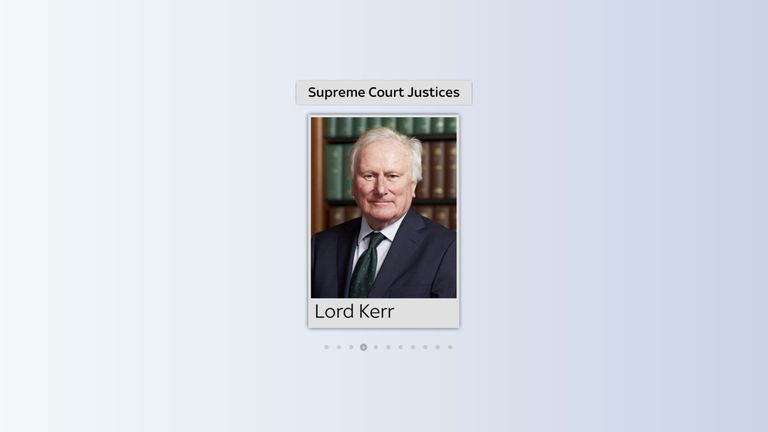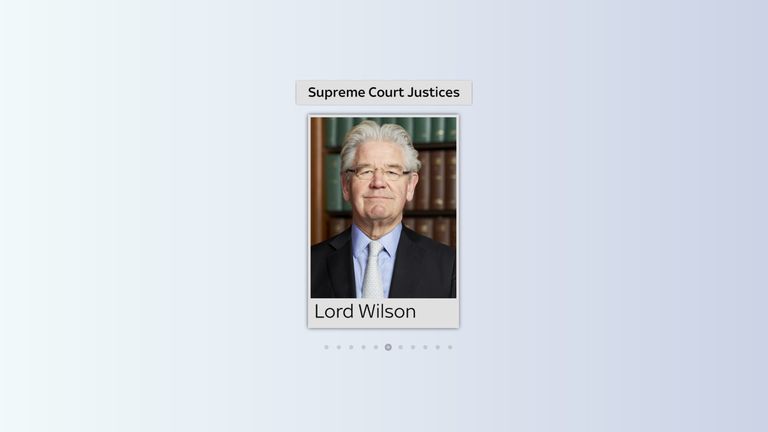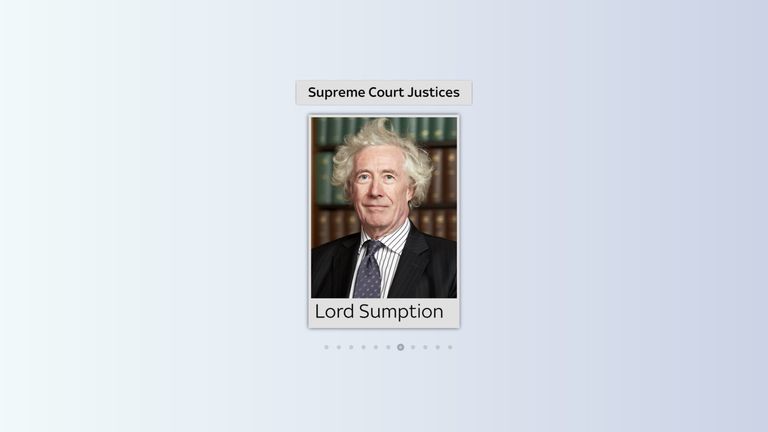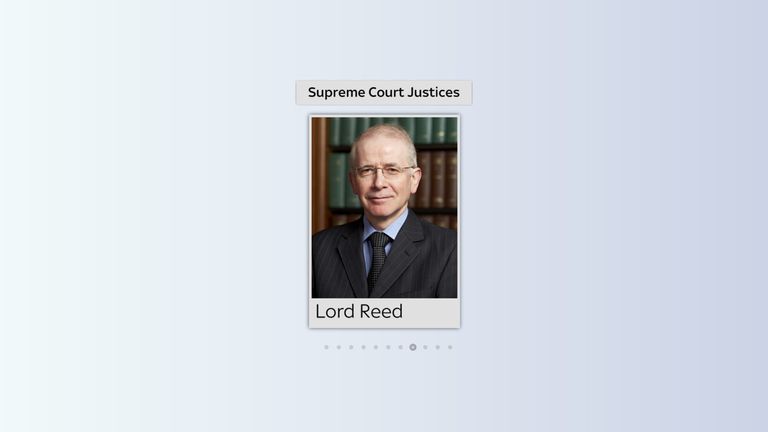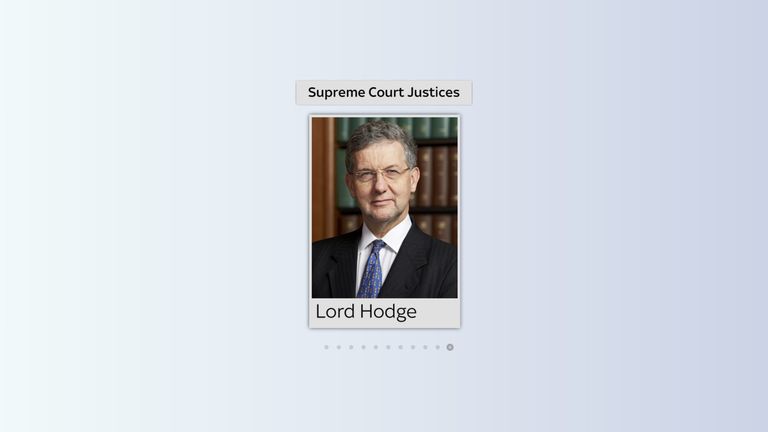Supreme Court told key Government power 'not an ancient relic'
The Government defends the use of its prerogative powers in triggering Article 50 as the court is set to hear from the other side.
Tuesday 6 December 2016 09:26, UK
The powers invoked by the Government to begin divorce procedures from the European Union are not an out鈥搊f-date "ancient relic" but a pillar of the British constitution, the Attorney General has told the Supreme Court.
Jeremy Wright made his remarks on the first day of a landmark case that will decide who has the power to trigger the UK's exit from the European Union - the Government or Parliament.
It is seen as one of the .
Emphasising the major implications, it is the first time in the Supreme Court's history that all 11 judges are sitting together.
The case revolves around Article 50 of the Lisbon Treaty. Once that has been triggered, two years of formal negotiations get under way between London and Brussels about the terms of a divorce.
Theresa May wants to trigger Article 50 by the end of March, using centuries-old Government powers known as the royal prerogative.
"It raises issues going to the very heart of our constitutional settlement," Mr Wright told the court as he opened the Government's arguments.
He said the use of prerogative powers - meaning MPs do not have to vote on the matter - did not undermine Parliament and that the 23 June referendum on EU membership had been held in the "universal expectation ... that the Government would implement its result".
The prerogative was not "an ancient relic", but a "fundamental pillar" of the constitution, he said.
James Eadie QC, also representing the Government, described the prerogative as "a long-standing, well-recognised set of powers firmly established in our constitutional arrangements" that were "fundamental to our constitution and essential to effective Government".
The case was brought by businesswoman Gina Miller, who says Parliament must decide on the issue.
Last month, three High Court judges agreed with her side of the argument, but the Government appealed that ruling. The Supreme Court hearing will last until Thursday, with a verdict expected in January.
The hearing will be the most televised UK case ever. Its proceedings are being streamed on the Supreme Court website and broadcast on television.
In a heated political climate, the judiciary has been accused by some Brexiteers and newspapers of seeking to thwart the Brexit process.
As the court convened in central London, some held up signs saying "Unbiased judges? This is an establishment stitch-up!", while other activists wearing judges' wigs and robes rode an open top bus past the Supreme Court in support of the judges.
In his opening remarks, the court's president, Lord Neuberger, stressed the court was aware of the "strong feelings associated with the many wider political questions surrounding the United Kingdom's departure from the European Union" - but those questions were not the subject of the appeal.
"This appeal is concerned with legal issues and, as judges, our duty is to consider those issues impartially, and to decide the case according to the law. That is what we shall do," he said.
He also noted that individual members of the public in the case had received "threats of serious violence and unpleasant abuse in emails and other electronic communications" and warned those responsible that "legal powers" existed to deal with them.
Mrs Miller says she has received abuse and death threats since the High Court ruling.
:: Watch full coverage from the Supreme Court from 10.15 this morning. There will also be a special programme including highlights from the second day of this historic challenge at 9.30pm on Sky News.

